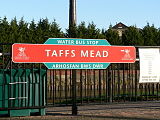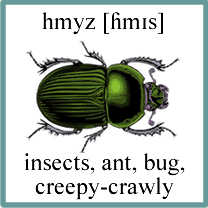At the French Conversation Group last night one of the people had an old French language textbook from the 1950s which contains lots of stories in French. One of them contains the word “Le Fossoyeur” in the title, which is translated as “The Sexton”. As this wasn’t a word I’d come across before, I thought I’d find out more about it.
According to the Oxford Dictionaries, a sexton is:
A person who looks after a church and churchyard, typically acting as bell-ringer and gravedigger.
Sexton is a Middle English word that comes from the Anglo-Norman French segrestein, from medieval Latin sacristānus (sacristan), which comes from the Latin sacer/sacr- (sacred).
A sacristan is person in charge of a sacristy and its contents, and a sacristy is a “room in a church where a priest prepares for a service, and where vestments and articles of worship are kept.”
The French word fossoyeur can also mean “personne ou chose qui ruine, détruit” (sb or sth that ruins or destroys) [source], and comes from the word fosse (pit, grave), from the Latin fossa (ditch, trench), from fodiō (dig out, excavate) from the Proto-Indo-European Proto-Indo-European *bʰedʰ- (to pierce, dig) [source].
The word fosse / foss also exists in English and means a ditch or moat, but is rarely used, except by archaeologist, for whom it means “a long, narrow trench or excavation, especially in a fortification.” [source]. Fosse also appears in the name of the old Roman road from Lincoln to Exeter – the Fosse Way.



